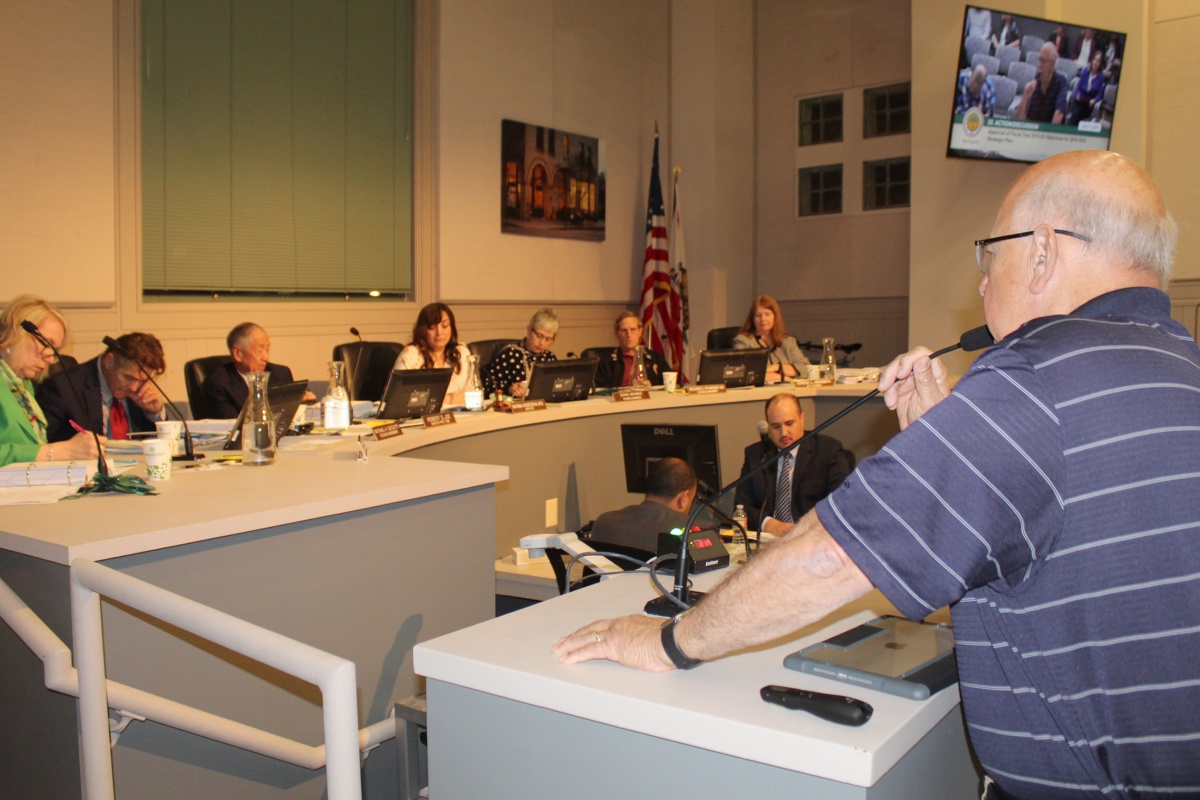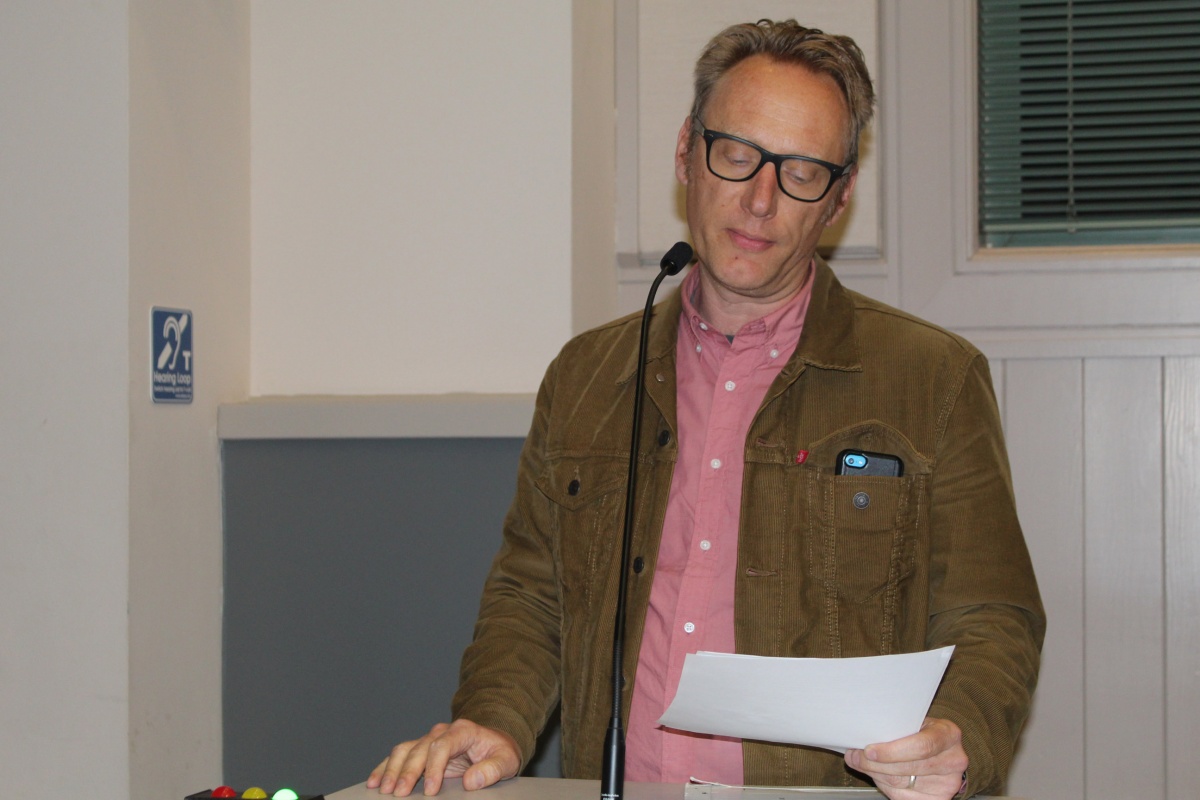
South Pasadena city councilmembers unanimously turned aside vocal demands to adopt an accelerated minimum wage schedule for the city after an emotional and at times testy public hearing April 17. Advocates demanded the schedule–versions of which already exist in Los Angeles and Pasadena–be incorporated as a new objective for this year under South Pasadena’s five-year strategic plan.
City Manager Stephanie DeWolfe warned that doing so would require elimination of one of the other 28 objectives slated for 2019-20–which include a city branding/marketing plan, new software to comply with FBI standards, and a mosquito awareness program–because the existing strategic plan already “maxes out” city staff and resources. “It does not allow the capacity to add another complex political policy issue that also requires an extensive community engagement program.”
The proposal would advance the statutory increases already in place that up California’s minimum hourly wage by one dollar each year until reaching $15/hour. The current minimum wage stands at $11/hour for businesses with 25 or fewer employees and $12/hour for those with 26 or more.
Six citizens testified, all but one in favor of an accelerated schedule.
Sam Hernandez, chair of the South Pasadena Chamber of Commerce–who said he was not speaking on behalf of the Chamber–told the Council that local merchants “already have enough on our plate” with rent and insurance increases, as well as a prospective sales tax increase under one of the city’s other strategic plan objectives aimed at closing the city’s projected budget gap.

Local activist John Srebalus stressed that the proposed ordinance his group submitted exempts small businesses while calling on those with 26 or more employees to immediately increase their lowest wage to $14.25/hour. He said they’ve worked to present the city a number of tools aimed at easing the city’s implementation, research, outreach and enforcement obligations, as well as an option for a “budget-neutral fee structure where costs are borne by non-compliant” parties. He said the proposal enjoys support from many hundreds in the community as well as members of the faith community, including Holy Family and South Pasadena Christian Churches, which he said are aligned with “a shared goal of less poverty, more economic equality and human dignity for all.”
Cambria Tortorelli, parish life director at Holy Family, said even though the church would be exempt as a qualifying non-profit, the parish and school have voluntarily committed to raise their minimum wage to $14.25/hour next July and to $15/hour in 2020. She called it “a moral imperative to do everything we can to pay just wages.”
Councilman Robert Joe was concerned adoption would leave local businesses with much less lead time than was afforded to businesses in Pasadena.
Councilwoman Diana Mahmud agreed, noting Pasadena’s ordinance gave its businesses 18 months, and the city had the advantage of starting with a higher minimum wage in the first place. “We have to give notice to our business owners and allow them to ramp up increases.” She questioned the level of community support for the acceleration as represented by advocates, but applauded individual efforts such as Holy Family’s to take voluntary action, calling it smart business in a region with tight labor markets.

“If we impose this unilaterally on our businesses it really would harm them” said Mahmud, who conceded that $15/hour is “not a living wage.” Everyone wants to address the matter, “but we have to balance all of the competing needs” of the city. “It’s not worth the other things that would be sacrificed.”
Mayor Marina Khubesrian said the city should not replace any of the many objectives in the strategic plan on which the Council agrees, such as development of a climate action plan, in favor of one that is so “divisive.”
Councilmen Michael Cacciotti suggested the city could dump one of its affordable housing objectives in favor of acceleration.
Councilman Richard Schneider said objectives need not be framed as being “in conflict with each other.” Nor should “our shortness of staff be an impediment” to consideration. The Council should accept the advocates’ repeated invitations to help the city do the background work. He said he is “confident that the great majority of people” in town support a minmum wage increase.
Joe, Cacciotti and Schneider were all still wavering until City Manager DeWolfe proposed taking the vote with the understanding that more information would be sought. The Mayor asked the Chamber of Commerce to compile data about how acceleration would affect its membership. That would leave the door open to amend the strategic plan before the scheduled adoption July 1 of next year’s budget. That’s important, DeWolfe explained, because the budget has already been structured with the existing strategic planning objectives in mind.
The Chamber’s Hernandez told the SouthPasadenan News his group, which represents about 280 of the roughly 1,500 active business licenses in town, would respond to the city’s request but will need more clarification on exactly what it wants, which will be key to how long it will take to gather. He said the data should reflect all local merchants, “not just those that are our members.”















.png)






